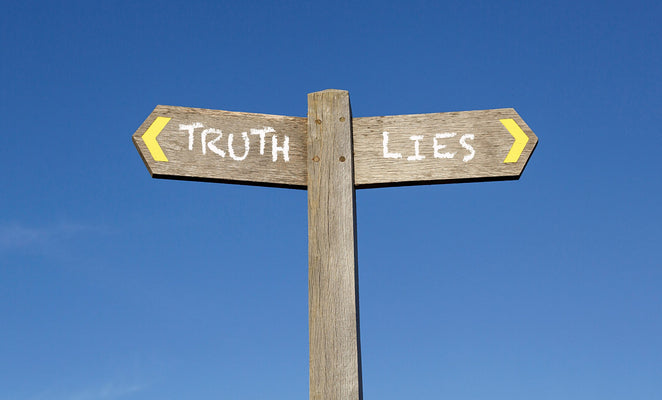
Perspective is Why You Read
tai attitude5 min read
There is a contemporary notion suggesting that no one reads anymore.
But what if we actually allow ourselves to give deeper thought to what we are being told in our lives? This includes the aforementioned quote.
Just think about why they said what they said. The reasoning behind the intention.
We do not seek quotes; we seek perspectives.
Our focus in this article revolves around perspectives on how it forms three distinct characteristics of those who read. Let us see what these are.
Optimism is in them
A student reads before the exam. The more willing the student is to dedicate a portion of their time to doing so, the better their chances of success are. We know this.
Imagine this: if tomorrow, when the clock strikes midnight, is the apocalypse of our world, would we still read today? No, we won't. We also know this.
The key takeaway is that, subconsciously, we knew that if we read, the better equipped we are for upcoming unforeseen events, yet we also knew that if tomorrow is the last, reading would then be pointless.
It turns out that we do not read for the present; we do it for the future. Those who are willing to read are forward-thinkers or have stronger intentions to move forward for new outcomes.
The action of reading is a manifestation and reaffirmation of their belief in tomorrow, for they anticipate and get ready for what is to come.
Reading is an optimistic habit; it is no surprise that a 2009 study by the University of Sussex in the UK found that reading for just six minutes can reduce stress by up to 68%.
In essence, daily reading is a great, natural remedy to infuse optimism and counteract the buildup of stress, preventing anxiety or depression.
Reading gives various perspectives on optimism. The reader gains insights into optimism, for it not only saves lives but also empowers them to make the most of theirs.
Empathy is a superpower
The more we are invested in the backstory of a character or hardship, the more empathic we are towards them. We know this.
Empathy is the ability to understand and share the feelings of others.
We cultivate empathy when we are able to relate to others.
What is distinctive about reading is that, in the medium of literature, words supply visual and auditory stimuli that enhance our imagination in the process.
Such accentuated concentration dives us into the literary world, which not only allows for broader interpretation but also takes present distractions away from our minds.
Again, the more invested we are, the more empathic we can become.
Reading is simply a more immersive way to learn something.
Regardless of genre, a large portion of the context of literature is about whys, hows, overcomings, or journeys. Reading can give perspectives on empathy, which is our capacity to place ourselves in another's position.
Therefore, the reader experiences empathy that makes them feel not alone, and such a feeling is vital. Readers are a more empathic version of themselves.
Adaptability is overlooked
Life is ever-evolving and unpredictable. We know this.
No one knows exactly what will happen next. Adaptability is the skill of moulding our actions and reactions to a changing environment.
Learners like the idea of constantly challenging their beliefs, and reading is a great way to stimulate them to adapt to new information (knowledge). Because the process is neither too easy nor too hard, it is just highly rewarding.
Think of reading as a mental workout for the brain. It stimulates our brain in a healthy way, so it may respond (adapt). Doing so on a habitual basis not only makes us more intelligent over time, but we become more mentally resilient as well.
There is no such thing as too much knowledge. But there is such a thing as a lack of knowledge for those who get stuck in a loop of circumstances, adversity, or problems in general.
The more knowledge we have ahead of us, the better our chances are to cope with and overcome the aforementioned challenges in life.
Since most knowledge is passed down in the form of literature, readers are well aware that the knowledge they seek has likely already been written about.
Reading provides perspectives on adaptability as it opens readers to previously unimaginable possibilities. As a result, readers are more adaptable; their way to the ever-evolving is with openness, flexibility, resilience, and innovation.
A habit for success
Every person has the desire to be better. Readers are unique in a way; they do it by constantly seeking the perspectives of others rather than fixating on their own.
We would say reading is a habit that fits the psychology of delayed gratification.
The opposite of delayed gratification is instant gratification.
No wonder most highly successful people have a reading habit. Perhaps it was such a habit that led them to success in what they do.
Readers get revelations from what they read, as the merit of reading is ultimately gaining perspectives. Perspective comes in the form of:
Optimism: to fully live in the present and have the intention to move forward.
Empathy: to be able to stand in others' shoes makes them feel human.
Adaptability: the ability to adapt when things do not go according to plan.
And more.
This is the 30th article that has been published for over 30 consecutive weeks. To conclude, we would like to express our gratitude to our readers like you, who have made this possible. If you are new, we would like to welcome you to Shiren Coffee.
For us, readers are just awesome. So, thank you. Truly. More to come.



